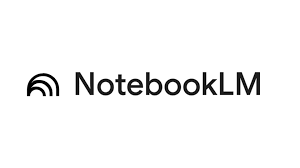Co-Intelligence: Living and Working with Artificial Intelligence by Ethan Mollick, offers a balance of playfulness, thoughtful analysis, and clarifying frameworks for working with artificial intelligence. In this book review, Dr. Brett Ashley Crawford shares a summary of what you will find in the text and a list to grow your bookshelf to better understand the opportunities and costs of Generative AI as it infiltrates our devices, work, and life
AMT Lab Staff Books: Art, Tech, and Our World
Looking for your next read at the intersection of art, technology, and our world? The AMT Lab team shares what they have on their bookshelves this season. From the rise of AI in marketing to the urgent need for climate action, our team discusses the books we found most impactful. Read more to find insights on accessibility, the power of music, and the future of culture.
An Experiment in Generative AI: Craiyon (Formerly Dall-e Mini)
Dall-e mini, recently renamed Craiyon due to its resemblance to the unrelated Dall-e created by OpenAI, became an internet phenomenon in recent months for its image generation. For those unaware of the technology, users can type a hyper-specific prompt into the image generator, and the AI generates something similar to the image terms.
Creative Writers Options with AI: Inferkit vs Sudowrite
Writing is often understood as a form of art that comes directly from soul to page, an intimate reveal of human emotion.This core concept of writing is complicated with the development of AI trained to write and write creatively. It is, of course, “thinking” about the act of writing while writing, and doesn’t really have the capacity to think about what it is writing in Flusser’s sense.
AI writing models present a challenge to our notions of writing, but they may also be an overlooked tool to writers themselves. What do they mean for writers and the craft in the future? Could an AI bot write a New York Times Bestseller? This review explains the process and technologies behind AI writing and compares two low cost programs.
“The Creativity Code” : Is AI taking Over Creative Industries?
Marcus du Sautoy, a British mathematician, wrote The Creativity Code, a thought-provoking book that examines the nature of artificial intelligence in the creative industries. The Creativity Code explores AI in art, mathematics, gaming, music, and writing. One question persists throughout: “Can AI complete creative tasks better than humans?”
Amadeus Code: Brave New World of A.I. Music Generation
Japanese startup Amadeus Code, an “artificial intelligence-powered songwriting assistant,” is the latest app that is riding the wave of A.I. art-generation. The algorithm scans a diverse database of popular music from the past 500 centuries (in theory - the earliest song this reviewer discovered was Schubert’s “Ave Maria” from 1825) and allows the user to specify the note range and length, drama, familiarity, and era. The app then creates a unique instrumental harmony based on these specifications, drawing inspiration from songs that have similar characteristics.










